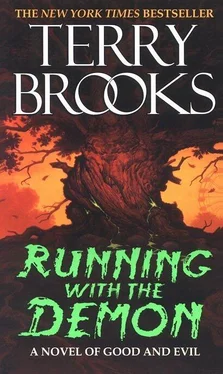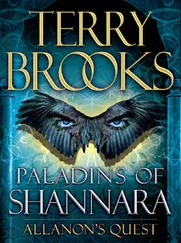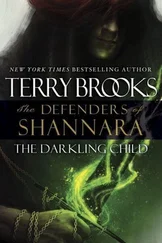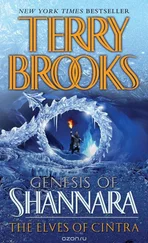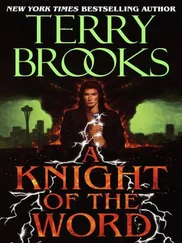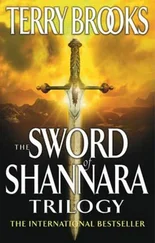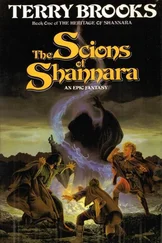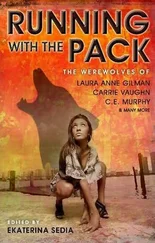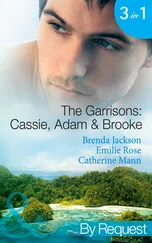"Looks like the whole town is here," Old Bob observed with a satisfied grin.
Ross glanced around. It seemed as if all the good places had been taken, but Gran led them forward determinedly, past the diamonds, the pavilion, the games, the cotton candy and popcorn, the band, and even the toboggan slide, past all of it and down the hill toward the bayou, to a grassy knoll tucked back behind a heavy stand of brush and evergreens that was shaded by an aging oak and commanded a clear view of the river. Remarkably, no one else was there, save for a couple of teenagers snuggling on a blanket. Gran ignored them and directed Ross to place the blanket in the center of the knoll. The teens watched tentatively as the Freemarks arranged their picnic, then rose and disappeared. Gran never looked at them. Ross shook his head. Old Bob caught his eye and winked.
The heat was suffocating on the flats, but here it was eased by the cool air off the water and by the shade of the big oak. It was quieter as well, the sounds of the crowd muffled and dis- ' tant. Gran emptied the contents of the picnic basket, arranged the dishes, and invited them to sit. They formed a circle about the food, eating fried chicken, potato salad, Jell-O, raw sticks of carrot and celery, deviled eggs, and chocolate cupcakes off paper plates, and washing it all down with cold lemonade poured from a thermos into paper cups. Ross found himself thinking of his childhood, of the picnics he had enjoyed with his own family. It was a long time ago. He visited the memories quietly while he ate, glancing now and again at the Freemarks.
Should I tell them? What should I tell them? How do I do what is needed to help this girl? How do I keep from failing them?
"Did you enjoy the service, John?" Old Bob asked him suddenly, chewing on a chicken leg.
Ross glanced at Nest, but she did not look at him. "Very much, sir. I appreciate being included."
"You say you're on your way to Seattle, but maybe you could postpone leaving and stay on with us for a few more days." Old Bob looked at Gran. "We have plenty of extra room at the house. You would be welcome."
Gran's face was tight and fixed. "Robert, don't be pushy. Mr. Ross has his own Me. He doesn't need ours."
Ross forced a quick smile. "I can't stay beyond tomorrow or the day after, thanks anyway, Mr. Freemark, Mrs. Freemark. You've done plenty for me as it is."
"Well, hardly." Old Bob cleared his throat, regarded the leg bone in his hand. "Darn good chicken, Evelyn. Your best yet, I think."
They finished the meal, Old Bob talking of Caitlin as a girl now, recalling stories about how she had been, what she had done. Ross listened and nodded appreciatively. He thought it might have been a while since the old man had spoken of his daughter like this. Gran seemed distracted and distant, and Ross did not think she was paying much attention. But Nest was watching raptly, studying her grandfather's face as he related the stories, listening carefully to his every word. Her concentration was so complete that she did not seem aware of anything else. Ross watched her, wondered what she was thinking, wished suddenly that he knew.
I should tell her. I should take the chance. She's stronger than she looks. She is older than her fourteen years. She can accept it.
But he said nothing. Old Bob finished, sighed, glanced out across the bayou as if seeing into the past, then reached over impulsively to pat his wife's hand. "You're awfully quiet, Dark Eyes."
For just an instant all the hardness went out of Evelyn Freemark's face, all the lines and age spots vanished, and she was young again. A smile flickered at the corners of her mouth, and her eyes lifted to find his.
Ross stood up, leaning on his staff for support. "Nest, how about taking a walk with me. My leg stiffens up if I sit for too long. Maybe you can keep me from getting lost."
Nest put down her plate and looked at her grandmother. "Gran, do you want me to help clean up?"
Her grandmother shook her head, said nothing. Nest waited a moment, then rose. "Let's go this way," she said to Ross. She glanced at her grandparents. "We'll be back in a little while."
They climbed the hill at an angle that took them away from the crowds, east toward the park's far end, where the deep woods lay. They walked in silence, Nest pacing herself so that Ross could keep up with her, limping along with the aid of his staff. They worked their way slowly through the shady oaks and hickories, passing families seated on blankets and at tables eating their picnic lunches, following the curve of the slope as it wound back around the rise and away from the river. Soon Gran and Old Bob were out of sight.
When they were safely alone, Ross said to her, "I'm sorry about what happened at church. I know it was scary."
"I have to show you something," she said, ignoring his apology. "I promised Pick."
They walked on for a ways in silence, and then she asked sharply, accusingly, "Are you an angel? You know, in the Biblical sense? Is that what you are?"
He stared over at her, but she wasn't looking at him, she was looking at the ground. "No, I don't think so. I'm just a man."
"But if God is real, there must be angels."
"I suppose so. I don't know."
Her voice was clipped, surly. "Which? Which don't you know? If there are angels or if God is real?"
He slowed and then stopped altogether, forcing her to do the same. He waited until she was looking at him. "What I told you was the truth–about the Fairy Glen, and the Lady, and the voice, and the way I became a Knight of the Word. What are you asking me, Nest?"
Her eyes were hot. "If there really is a God, why would He allow all those feeders in His church? Why would He allow the demon in? Why would He allow Mrs. Browning to die? Why didn't He stop it from happening?"
Ross took a long, slow breath. "Maybe that isn't the way it works. Isn't the church supposed to be open to everyone?"
"Not to demons and feeders! Not to things like that! What are they doing here, anyway? Why aren't they somewhere else?" Her voice was hard–edged and shaking now, and her hands were gesturing wildly. "If you really are a Knight of the Word, why don't you do something about them? Don't you have some kind of power? You must! Can't you use it on them? Why is this so hard?"
Ross looked off into the trees. Tell her. His hands tightened on the staff. "If I destroy the feeders, I reveal myself." He looked back at her. "I let people know what I am. When that happens, I am compromised. Worse, I weaken myself. I don't have unlimited power. I have … only so much. Every time I use it, I leave myself exposed. If the demon finds me like that, he will destroy me. I have to be patient, to wait, to choose my time. Ideally, I will only have to use my power once–when I have the demon before me."
He felt trapped by his words. "Pick must have told you about the feeders. The feeders are only here because of us. They react to us, to us as humans. They feed on our emotions, on our behavior. They grow stronger or weaker depending on how we behave. The Word made them to be a reflection of us. If we behave well, we diminish them. If we behave badly, we strengthen them. Give them too much to feed on and they devour us. But they're not subject to the same laws as we are. They don't have life in the same way we do; they don't have substance. They creep around in the shadows and come out with any release of the dark that's inside us. I can burn them all to ash, but they will just come back again, born out of new emotions, new behavior. Do you understand?"
The girl nodded dubiously. "Are they everywhere, everywhere in the world?"
"Yes."
"But aren't there more in places where things are worse? In places where the people are killing each other, killing their children?"
Читать дальше
